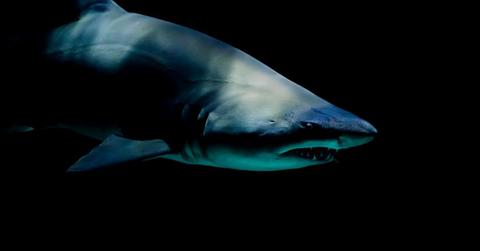Researchers Confirm 'Cocaine Sharks' Exist Off Brazilian Coast After Buzzed Beasts Test Positive for Drugs

Sharks off the coast of Brazil have tested positive for cocaine, researchers say.
"Cocaine Shark" may be a B movie, but researchers say more than a dozen sharks off the coast of Brazil have in fact tested positive for the presence of cocaine in their livers and muscles.
The study, carried out by several Brazilian research groups and the Bahamas-based Cape Eleuthera Institute, was published in the journal Science of the Total Environment.
According to the study, 13 Brazilian sharpnose sharks along the shores of Rio de Janeiro had high levels of cocaine in their muscles and livers. The concentrations were up to 100 times higher than previously reported in other marine animals.
Among the sampled sharks, all of the females with cocaine in their systems were pregnant at the time of the study, and the researchers say it's unclear what effect the cocaine may have on developing fetuses.
While the waters off Brazil may be contaminated due to lost packages of cocaine along trafficking routes to North America or Europe, previous research has also found the presence of drugs, including legal prescription drugs, in untreated sewage released out to sea.
Earlier this year, a separate group of researchers warned that cocaine is an "emerging contaminant of concern" in the Bay of Santos, home to the largest seaport in Latin America, and throughout the São Paulo coastal region.
- 'Monster of Avignon': Firefighter, Painter and IT Worker Among 50 Men Charged in Connection with Gisele Pelicot Assault
- Pennsylvania Childcare Worker, Partner Accused of Recording Sexual Abuse of Minors
- Monster of Avignon: Husband Stuns with Courtroom Confession He Drugged and Allowed Dozens of Men to Sexually Assault His Wife
“Cocaine today is, in fact, a contaminant of the Bay of Santos. We found drug contamination spread throughout the region,” Federal University of São Paulo professor Camilo Dias Seabra said during a panel discussion in Chicago during FAPESP Week Illinois in April.
In that study, researchers found a variety of drugs in addition to cocaine, including ibuprofen, paracetamol and diclofenac. Cocaine was found in a concentration similar to caffeine.
Never miss a story — sign up for the Front Page Detectives newsletter. Be on the scene the moment news breaks.
“It’s a huge concentration of cocaine if we imagine the consumption of caffeine,” Seabra said. It was so high, researchers at first thought their results were confounded by taking samples during Carnival, when there is an influx of tourists and an increase of drug use.
“We thought it might be a carnival phenomenon. But we did seasonal monitoring and found that, throughout the year, cocaine and its metabolites were present not only in the water but also in mussels, for example,” Seabra said.
TMX contributed to this report.
Become a Front Page Detective
Sign up to receive breaking
Front Page Detectives
news and exclusive investigations.
